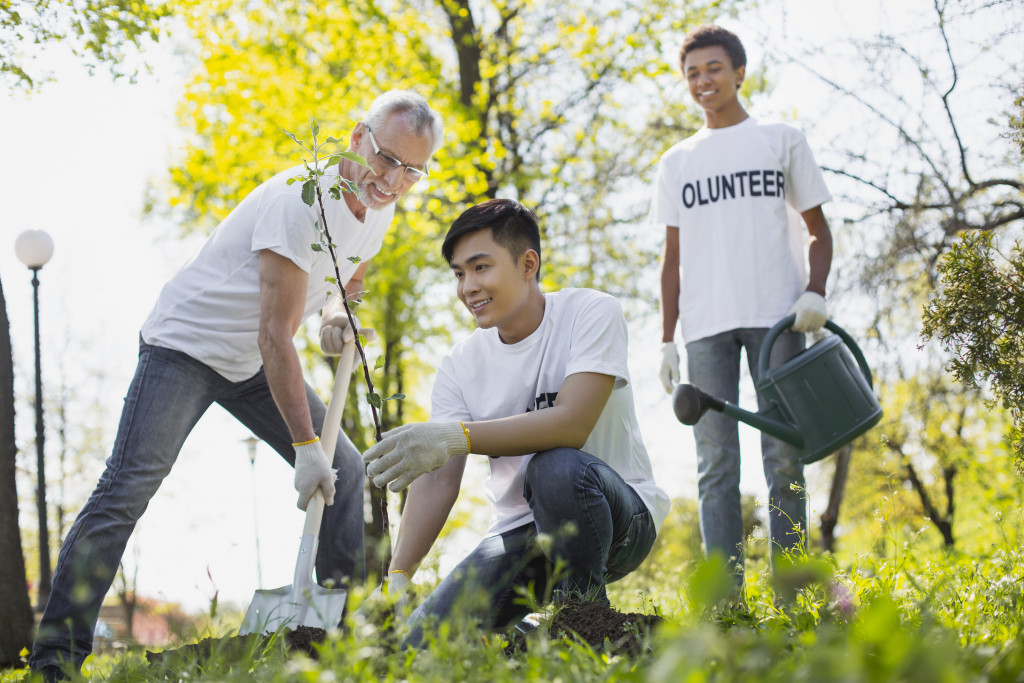Building a community takes time, patience, diligence, and effort. The superpowers of the world didn’t become great nations overnight. They had difficulties to overcome and, in the process, learned from each other, joined forces, and established communal goals.
Of course, we are talking about a macro level, one of the economic powerhouses, fully developed nations that tower among the rest and are symbols of progress and prosperity.
Still, we can also explore these issues on a smaller scale, namely that of a residential area, an enclave of houses, or a neighborhood. The principles are the same, albeit on a different scope and size.
As we think about how societies developed over time, let us explore four ways to build better communities in the places we live, study, and work.
Generating Employment for Others
One of the main features of a prosperous community is the existence of jobs. When people are allowed to work, it grants the intrinsic benefit of self-worth and societal need and gives them a chance to develop new skills, network, and make a living for themselves and the other members of their families.
If you want to help your community, arguably the best thing you can do is create jobs for those who don’t have them or are not satisfied with what they currently do.
Even if all kinds of work are acceptable, a great idea is to get a few dollars from your savings and invest in something related to food, a QSR franchise, for instance. Besides generating employment in your local area, a restaurant, cafe, or diner provides a place for people to relax, build relationships, and enjoy the camaraderie that comes with eating with those close to you.
Organizing Volunteering Activities
There will always be people in need. No matter how much the world evolves, how caring human beings become, or how just and empathetic leaders are, there will always be those who suffer, and inequality will never cease to exist.
But that doesn’t mean you cannot or should not do what is in your means to help others. It doesn’t mean you have to accept this reality, save yourself the time, and look the other way.
When it comes to a community, the actions of a few have tremendous repercussions on the many. When you feed a family, you are giving them food and allowing them to fight another day, get a job, and make a living. If you teach a child how to cook, fix a car, or create something, you are not only saving him but also the generations to come.

Helping Each Other Out
Many have often talked about the strength that comes with numbers. From military leaders to Hollywood movies, sports coaches, human resource managers, and everything in between, teamwork is often considered the key to victory and success.
From a community perspective, there are different ways you can do this. One example is creating safety and accountability systems in residential buildings and neighborhoods. In this case, one member of the community is responsible for another, and in turn, another person is responsible for him or her. When somebody is in danger, he doesn’t have to deal with this situation alone. Rather, there is an assigned person who has his back and can assist.
Another way to do this is simply building a circle of kindness. If you see an older person crossing the street, why not help him out?. Over time, this will create a wonderful environment of mutual support.
Leveraging Skills and Knowledge
Regardless of who you are or where you live, there is probably a doctor living close by. Whether you know this person or he is a stranger to you is a different matter. But wouldn’t you like to have this information if one day you find yourself in an accident and need medical assistance? What if you don’t need a doctor but rather a lawyer, an engineer, or a professional translator? Instead of scouring the earth for the best suitable person, wouldn’t it be great to know you have one a few minutes away?
Communities thrive because different people with different skills and abilities work as a cohesive unit driven by cooperation and interdependence. Thus, a useful plan is to make a database of those living in your neighborhood and the areas in which they excel. Who knows, it might be you who gets the opportunity to make another’s day.
If you want to make your community better, help others find work and volunteer in your free time. Also, assist those in need when you can and use the skills you have for the betterment of your area. This makes your community thrive and gives you great satisfaction in knowing you are contributing to the benefit of others.




